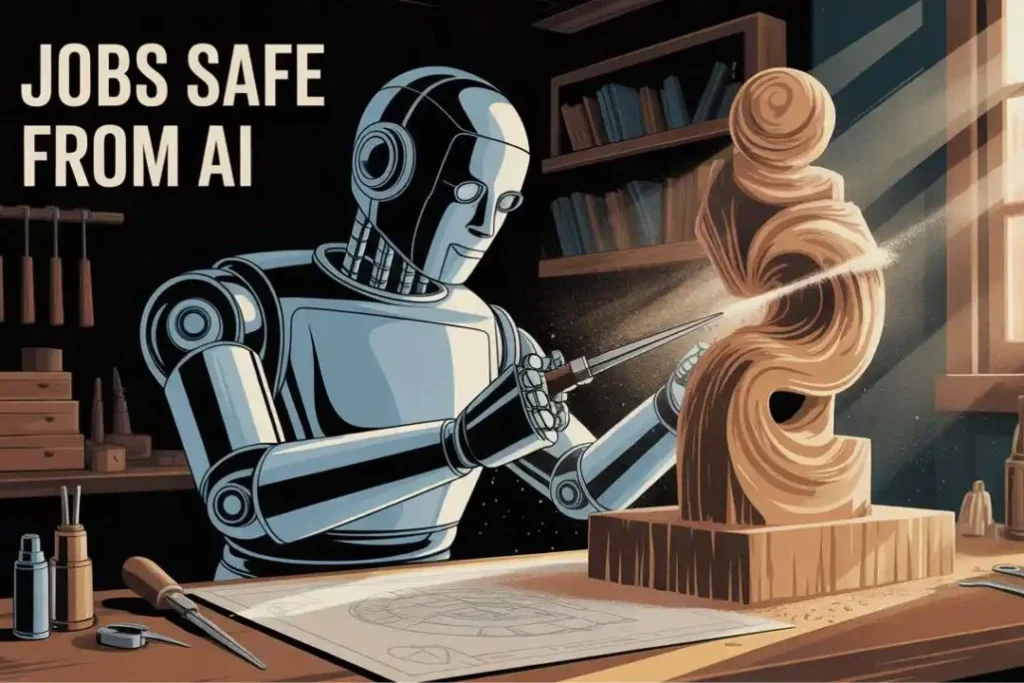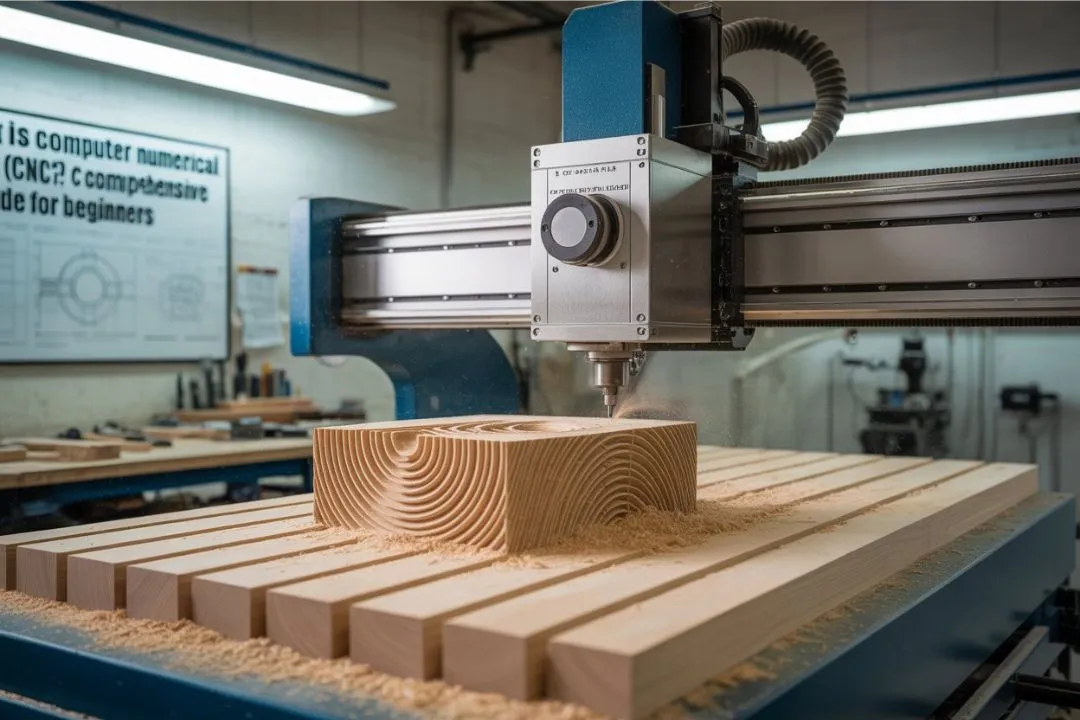The rise of artificial intelligence (AI) has brought immense change to the modern workplace. While AI is driving innovation and efficiency, it’s also sparking concern about job security. Will AI replace human jobs? It’s a question echoing across industries, boardrooms, and everyday conversations. The reality is that we are already witnessing AI taking over jobs, and this trend is reshaping the employment landscape in significant ways.
Let’s explore the AI impact on employment, the sectors most affected, and what the future of work with AI looks like.
Understanding AI’s Role in the Workforce
Artificial intelligence replacing workers isn’t just a futuristic prediction—it’s a present-day reality. From automation in manufacturing to intelligent chatbots in customer service, AI in the workforce is transforming how businesses operate.
The combination of machine learning, natural language processing, and robotics enables AI to perform complex tasks once reserved for humans. This has led to the AI job disruption we are witnessing today. Still, not all changes are negative. AI is also creating new roles and enhancing productivity in many areas.
But the pressing concern remains: Which jobs will AI replace, and how AI affects employment going forward?
7 Fields Already Affected by AI
Let’s dive into seven professional fields already experiencing the shift of AI automation and employment, shedding light on careers AI will replace and those that may evolve or disappear.
1. Customer Service
Customer service and AI is one of the most obvious examples of automation. Chatbots and virtual assistants now handle thousands of interactions daily. They answer queries, process returns, and even upsell products—all without human intervention.
While human reps are still needed for complex issues, many entry-level positions in call centers are at risk. This is a clear example of AI replacing real people and contributing to AI-induced layoffs in service-based industries.
2. Manufacturing and Warehousing
The concept of AI in manufacturing jobs isn’t new, but recent advances have taken automation to the next level. Robots now assemble cars, sort packages, and manage inventory in warehouses like Amazon’s fulfillment centers.
This sector has seen a significant number of human jobs lost to AI, especially in repetitive or physically demanding roles. AI replacing blue-collar jobs is a major concern for labor unions and policymakers alike.
3. Finance and Accounting
AI is transforming how we manage money. AI in finance jobs involves algorithmic trading, fraud detection, and even automating tax preparation. Tasks that once required entire departments can now be handled by software.
While senior roles that require judgment and regulation knowledge are safe (for now), many back-office positions are among the jobs affected by AI.
4. Transportation and Logistics
Self-driving technology and AI route optimization tools are disrupting the transportation sector. AI in transportation threatens jobs like truck drivers, delivery drivers, and even pilots in the long term.
With companies like Tesla, Waymo, and Uber investing in autonomous vehicles, it’s not unreasonable to ask, Will robots take our jobs on the road? For some, the answer may be yes.
5. Healthcare
The question, Will AI replace doctors? often causes debate. While AI won’t replace doctors entirely, it’s already changing how they work. AI in healthcare is used for diagnostics, treatment planning, and even robotic surgeries.
Radiologists, for instance, are seeing AI outperform humans in detecting certain conditions. This represents AI job threats to medical imaging professionals, though collaborative roles are emerging as AI becomes a decision-support tool.
6. Legal Services
Document review, contract analysis, and legal research—tasks typically performed by junior lawyers or paralegals—are being handled by AI with impressive accuracy. AI in legal jobs has prompted concerns about the AI job displacement of legal assistants and interns.
However, roles that involve courtroom advocacy, negotiation, or client counsel remain largely untouched—for now.
7. Education
Will AI replace teachers? Not entirely. But it’s changing how they teach. AI in education helps personalize learning, automate grading, and even tutor students. This might reduce the demand for teaching assistants and tutors, adding to the list of jobs humans will lose to AI.
Still, human educators provide emotional intelligence, mentorship, and adaptability that AI currently cannot replicate.
Broader Impact: AI Changing Job Markets
The AI takeover in employment is broader than just replacing jobs—it’s reshaping entire job markets. Fields such as journalism, real estate, marketing, and even creative arts are experiencing the rise of AI in the workforce.
For instance, AI and creative jobs are now intersecting through tools that generate music, art, and even written content. So, will AI replace artists? Not completely, but the creative process is definitely being augmented and in some cases challenged.
Jobs Safe from AI

While many fear AI job loss, not all jobs are at risk. There are AI-proof careers that require empathy, complex decision-making, or physical dexterity in unpredictable environments. These include roles like:
- Mental health professionals
- Skilled trades (e.g., electricians, plumbers)
- Social workers
- Creative directors
- Childcare workers
These jobs safe from AI emphasize human traits that machines struggle to replicate.
How to Adapt: Preparing for AI in the Workplace
Rather than fearing the question, Will AI replace human workers, the focus should shift toward adapting to AI in the workplace. Workers can:
- Learn new digital skills
- Embrace AI collaboration tools
- Transition into AI-adjacent roles (e.g., data labeling, AI ethics)
- Invest in lifelong learning to stay competitive
The AI job revolution is already here. The best way to survive—and thrive—is to evolve alongside the technology.
Final Thoughts: Will AI Replace Human Jobs?
So, will AI replace human jobs entirely? No. But it will replace many. It’s also creating new roles, demanding new skills, and accelerating change in every sector. The truth about AI and jobs is that disruption doesn’t mean extinction—it means transformation.
As we continue to explore AI technology and job market trends, one thing is clear: embracing change is essential. Whether you’re in finance, education, manufacturing, or the arts, preparing for AI-driven job changes will be key to staying relevant.
Understanding the AI workforce impact today helps us prepare for tomorrow. The question is no longer “Can AI do your job?” but rather, “What can I do that AI can’t?”


